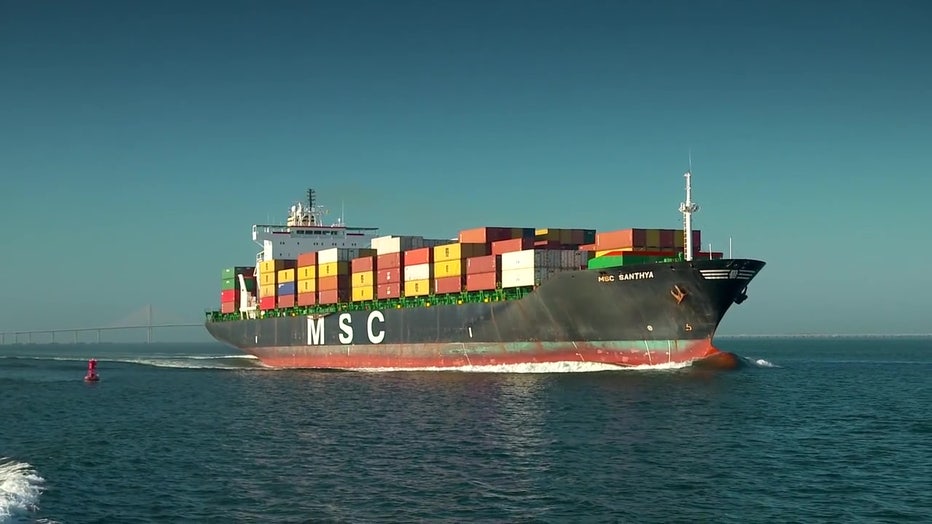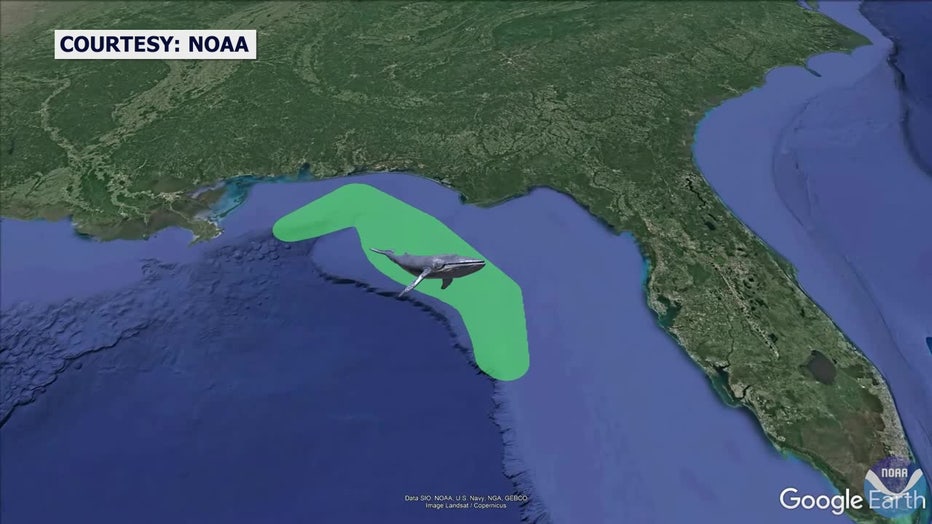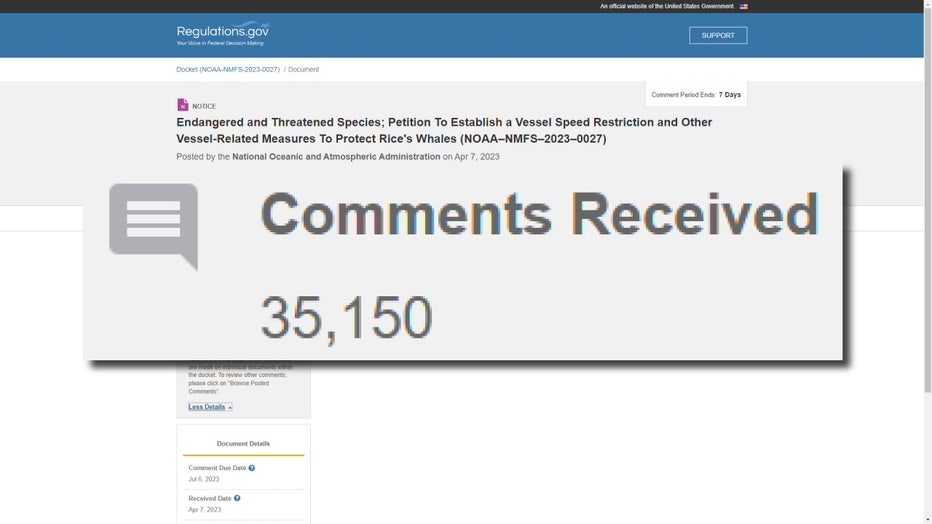Organizations petition to restrict vessel activity to protect endangered whale
TAMPA, Fla. - Six organizations sent a petition for rulemaking to NOAA Fisheries, calling for new rules that would restrict vessel speed and nighttime shipping activity.
The Natural Resources Defense Council, Healthy Gulf, Center for Biological Diversity, Defenders of Wildlife, Earthjustice, and New England Aquarium submitted the petition in April.
The changes to vessel-related measures are aimed at protecting Rice’s whales.
"It may be one of the most endangered whales in the world," NOAA Fisheries’ Grant Baysinger said.
READ: Glitter-filled inner tubes can be ‘detrimental’ to marine life, experts say
Rice’s whales – sometimes referred to as "Gulf of Mexico Bryde’s whales" – historically live in the northeastern Gulf of Mexico. However, one was found in 2017 near Corpus Christi, Texas, Baysinger said.
Rice’s whales are closely related to "Bryde’s whales" (pronounced "broodus"), but in 2021, scientists determined that the Rice’s whale was a unique species.

New rules proposed by six organizations would restrict vessel speed and nighttime shipping activity to protect endangered whales.
It’s estimated there are only 50 Rice’s whales remaining, Baysinger told FOX 13.
According to NOAA, a female Rice’s whale was found dead in Tampa Bay after being struck by a vessel in 2009.
READ: Mote Marine releasing red drum fish to counteract red tide and pollution
To avoid this happening again, the petition calls for a ‘Vessel Slowdown Zone’ and a year-round 10-knot vessel speed restriction "within waters between 100 meters (m) and 400 m deep from approximately Pensacola, FL, to just south of Tampa, FL."

Rice’s whales are sometimes called "Gulf of Mexico Bryde’s whales." Courtesy: NOAA
"That's way too slow," Florida Ports Council President and CEO Michael Rubin said. "Imagine you're in a vessel and there's a storm coming of some kind. You want to have the ability to move to separate areas and the like."
The petition also outlines the banning of nighttime vessel transits.
"Imagine a hurricane. You've got all that fuel waiting to come over from Texas and Louisiana, and you've told them, ‘We're sorry, you can't move at night.’ They're sitting there waiting to come into the Port of Tampa once it's opened by the Coast Guard," Rubin said.
SeaPort Manatee Deputy Executive Director Dave Sanford told FOX 13 one third of its ship calls fall within the rule’s prohibited hours.

NOAA has received over 35,000 comments about the petition.
"It would be very difficult to accommodate all of the vessel calls that we have during daylight hours," Sanford explained. "So that would mean additional cost for ship operation, additional time to get goods to market. It would have a tremendous impact on the supply chain."
Sanford added he worries about ships changing their itineraries.
"If it's that unprofitable to operate in the Gulf, they may well go outside Florida. They certainly have other choices on the Gulf Coast. They can go to Mobile. They can go to Lake Charles. They can go to any of several ports in Texas," Sanford said. "So it could have a huge impact not only on just on our business, but on consumers within our distribution area."
READ: Gov. DeSantis to send $130 million in funding to the Indian River Lagoon
SeaPort Manatee and the rest of the Florida Ports Council detailed their concerns in a letter to NOAA while also acknowledging their concerns for the environment.
"Florida seaports are committed to protecting whales on both the Atlantic and Gulf Coasts. We continue to work with local federal officials on near real time monitoring equipment to prevent whale strikes," the letter states.
"The Florida Ports Council letter is exactly what we're looking for. We want to hear what the impacts could be to different entities out there," Baysinger said.
NOAA has received over 35,000 comments regarding the petition and will continue to accept them until July 6. To submit a comment, click here.
After reviewing all the comments, then NOAA will make a decision.
"We would decide either to move forward with a proposed rule and open up a public comment period for that. Or, we would decide to deny the petition," Baysinger shared.

